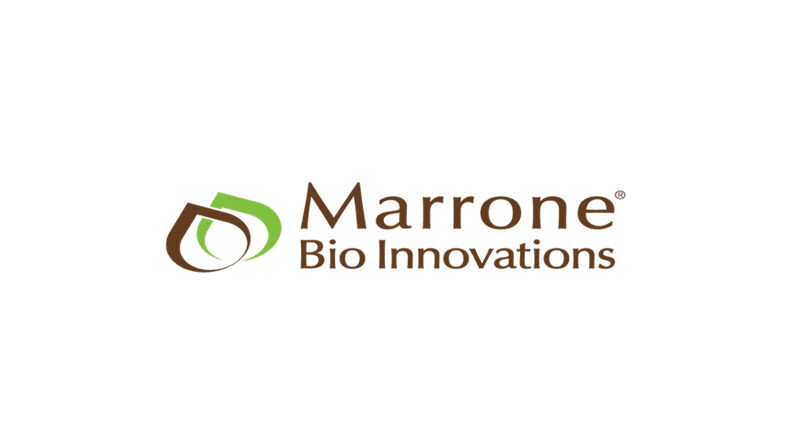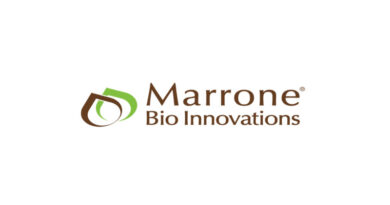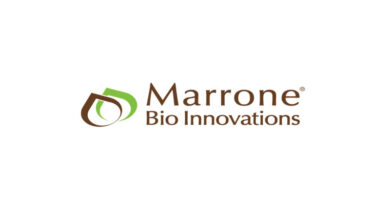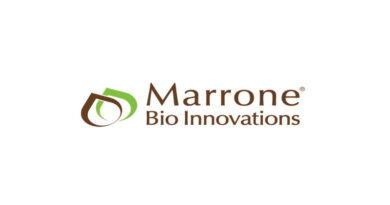BIOSt® Nematicide Seed Treatment Reduces Greenhouse Gas Emissions in Soybeans and Corn
06 May 2021, California: Marrone Bio Innovations, Inc. an international leader in sustainable agricultural biological solutions, announced today that BIOSt Nematicide seed treatment product, achieved an outstanding climate impact score of 9.8 out of 10.
Also Read: UPL signs a multi-year agreement with the Soil Health Institute to drive innovation in agriculture
The Climate Impact Study showed that BIOSt Nematicide reduced greenhouse gas (GHG) emissions by 85 percent in soybeans and 87 percent in corn compared with conventional pesticides. The independent study, conducted by Boundless Impact Research & Analytics, assessed GHG emissions, human and environmental safety, and product performance against similar conventional and biological pesticides used in seed treatment.
BIOSt Nematicide, a novel, broad spectrum biological seed treatment, was launched in 2016 to protect crops against certain plant parasitic nematodes and soil-dwelling insect pests. It is approved for conventional and organic use and is safe for human use, pollinators (such as bees), and aquatic life. Today, BIOSt Nematicide is used by an estimated 17,000 growers on more than 11 million acres of row crops in the U.S.
Conservative estimates show that for every million acres of soybeans and corn seed treated with BIOSt Nematicide, more than one million pounds of carbon dioxide (CO2) emissions are reduced respectively. This is equivalent to the amount of carbon sequestered in one year by nearly 600 acres of U.S. forestland.1 If BIOSt Nematicide was used on the entire projected 87.6 million U.S. soybean plantings for 2021, the CO2 emission reduction would potentially equal more than 43,000 metric tons, comparable to removing nearly 10,000 passenger cars from the road.
“This study provides further evidence as to the contributions our products can make toward protecting the environment by reducing greenhouse gas emissions and providing a safe habitat for pollinators,” said Kevin Helash, chief executive officer of MBI. “Biological products now account for roughly one-third of all active ingredients used in agriculture. Their increasing adoption has been a testament to their efficacy, safety and sustainability, and Marrone Bio has been a leader in this growth.”
Helash added, “Sustainability is at the core of our products and people. This new data underscores the beneficial experience our distribution partners and grower customers have had with BIOSt Nematicide in row crops such as soybeans, corn, and cotton. As one of our flagship products, BIOSt Nematicide provides a unique solution that delivers effective crop protection and provides growers with another tool to address the challenges of climate change.”
These findings support the results of a 2019-2020 GHG life-cycle assessment conducted by the University of California Davis Graduate School of Management. This study concluded that the use of MBI’s bioprotectants would likely reduce GHG emissions by 69 to 91 percent when compared with conventional pesticides. “We strive to continually assess the environmental impacts of our products in a fair and factual manner, and both of these studies support that goal,” said Keith Pitts, chief sustainability officer and senior vice president of regulatory and government affairs for Marrone Bio.
Michele Demers, founder and CEO of Boundless Impact Research & Analytics, said: “Our climate impact assessment of biopesticides provides a science-based and independent critique and comparison of the environmental impact of these breakthrough technologies. BIOSt Nematicide offers a significant environmental improvement over other conventional pesticides and provides a compelling alternative.”
BIOSt Nematicide is available throughout the U.S. through Marrone Bio’s distribution partner, Albaugh LLC, who is the trademark’s registered owner.















